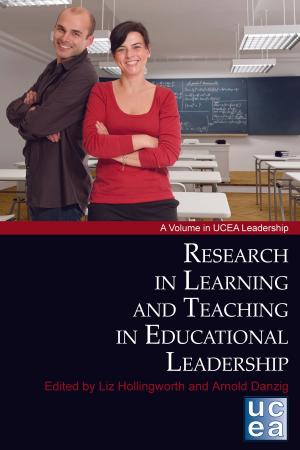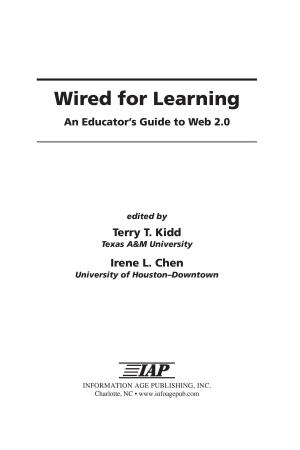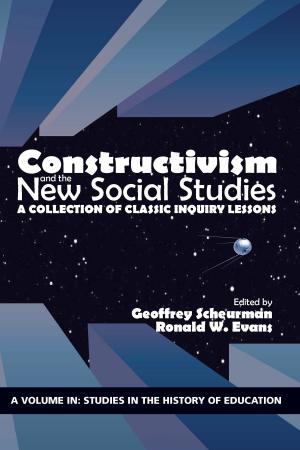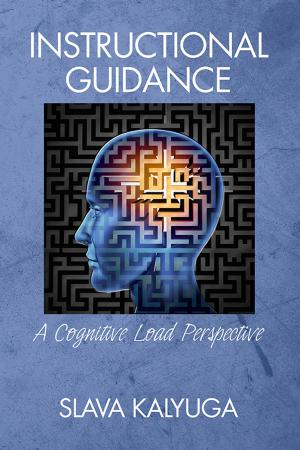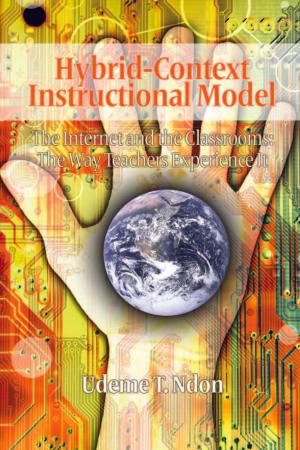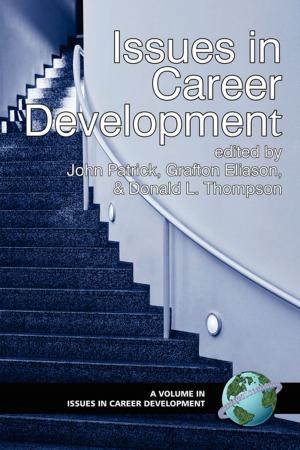Reflection and the College Teacher
A Solution for Higher Education
Nonfiction, Reference & Language, Education & Teaching, Higher Education| Author: | Rachel Wlodarsky, Howard Walters | ISBN: | 9781623964719 |
| Publisher: | Information Age Publishing | Publication: | December 1, 2013 |
| Imprint: | Information Age Publishing | Language: | English |
| Author: | Rachel Wlodarsky, Howard Walters |
| ISBN: | 9781623964719 |
| Publisher: | Information Age Publishing |
| Publication: | December 1, 2013 |
| Imprint: | Information Age Publishing |
| Language: | English |
Higher education is facing many challenges, not least of which is retaining excellent faculty and cultivating their continued professional growth. This book explicitly ties the literature to the practical concerns and recommendations related to applying the reflective process in a college setting. In this way, the theories and empirical findings of the most recent literatures are linked to practical recommendations. The reflective tools described in this book provide an important resource for facultys’ reflective practice. Unlike other books on the topic, the model developed and presented in this book allows for the reflective process to validate faculty's previous actions or accomplishments and maintain these practices. In other words, the endpoint of reflective process supports selfsatisfaction. Instead of a deficit model, the focus is development. In this comprehensive volume, readers discover the seminal and the recent research in reflective practice drawn from a wide range of sources, including the authors’ recent research findings on college teachers’ reflection. Altogether, Wlodarsky and Walters systematically address these critical questions: a. What is reflection? b. Of what practical use or benefit does reflection serve? c. How do college teachers model reflection in the workplace? d. What are the steps in the reflective process? e. How can the reflective process be harnessed for program improvement in the college setting and in individual faculty practices? Wlodarsky and Walters understand and address the real needs of college teachers today. They created not only a thorough academic book, but also a compelling, relevant read. Specifically, they designed the chapters to include scenarios—developed from interview transcripts with college teachers. These stories powerfully contextualize the types of problems and tensions which surround the professional work environment of a college campus and the roles of the college teacher.
Higher education is facing many challenges, not least of which is retaining excellent faculty and cultivating their continued professional growth. This book explicitly ties the literature to the practical concerns and recommendations related to applying the reflective process in a college setting. In this way, the theories and empirical findings of the most recent literatures are linked to practical recommendations. The reflective tools described in this book provide an important resource for facultys’ reflective practice. Unlike other books on the topic, the model developed and presented in this book allows for the reflective process to validate faculty's previous actions or accomplishments and maintain these practices. In other words, the endpoint of reflective process supports selfsatisfaction. Instead of a deficit model, the focus is development. In this comprehensive volume, readers discover the seminal and the recent research in reflective practice drawn from a wide range of sources, including the authors’ recent research findings on college teachers’ reflection. Altogether, Wlodarsky and Walters systematically address these critical questions: a. What is reflection? b. Of what practical use or benefit does reflection serve? c. How do college teachers model reflection in the workplace? d. What are the steps in the reflective process? e. How can the reflective process be harnessed for program improvement in the college setting and in individual faculty practices? Wlodarsky and Walters understand and address the real needs of college teachers today. They created not only a thorough academic book, but also a compelling, relevant read. Specifically, they designed the chapters to include scenarios—developed from interview transcripts with college teachers. These stories powerfully contextualize the types of problems and tensions which surround the professional work environment of a college campus and the roles of the college teacher.


